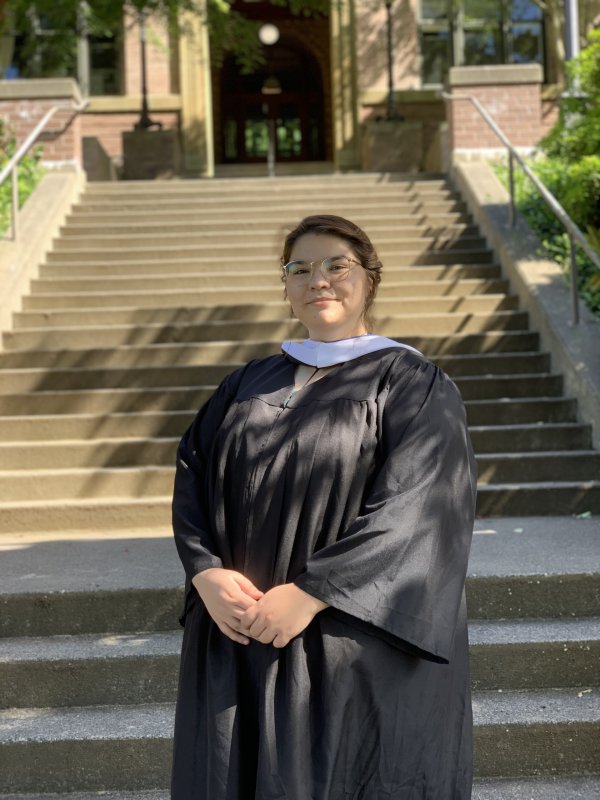Inside Emily Lampert's journey from WWU undergrad to doctoral candidate
Not every student arrives at their university with a laser-like focus on what they want to study, or who they want to be when they graduate. The path is very different for each, and WWU alumna Emily Lampert's story highlights how finding your passion, combined with willing mentorship from faculty, can lead you to places you never envisioned when you first set foot on campus.
Lampert graduated from Western with a bachelor's degree in History in 2018 and a master's degree in History in 2020. As a graduate student, Lampert studied enslaved midwives in the Chesapeake Bay area during the 18th century; she was originally interested in white midwifery in New England, but her advisor suggested she shift her focus. A lot of scholarship has been devoted to the practice of midwifery by white women in New England during the 18th century, but much less research has been devoted to the practice of Black midwives in the Chesapeake.
As a graduate student at Western, Lampert was awarded a Ross Travel Grant to go to Virginia and research the records kept at plantations such as Mount Vernon and Monticello, the estates of George Washington and Thomas Jefferson.
Lampert said that the written record of enslaved midwives is sparse and indirect, but one narrative she uncovered from her research trip is that of Rachael, an enslaved midwife at Monticello. The only records of Rachael come from accounting books, which recorded the amount Rachael was paid for the children she delivered. From this record, however, Lampert found that at one point, Rachael delivered her own grandchild.
Lampert points to how complicated this midwifery work was.
“You're helping your own daughter give birth to your grandchild but at the same time bringing your grandchild into a world where they are also enslaved,” she said.
Lampert said her graduate degree from Western opened new doors and research opportunities that helped prepare her for the work she is now putting in on her doctorate at Rice University in Houston, Texas.
“The master's degree from Western gave me an opportunity that I wouldn’t have had otherwise,” she said. “The program at Western took a chance on somebody with a B average, let them in, and I feel like I really flourished there. It was the first time I could really focus on school because of the Teaching Assistantship.”
Lampert studied under Jared Hardesty, Josh Cerretti, Peter Pihos and Jennifer Seltz during her time at Western, and said she found their mentorship invaluable.
“[Mentorship] is incredibly important, especially for students who don’t come from an academic background. Academia can be a strange place with strange unwritten expectations and procedures, and having someone show you how to navigate that is crucial to student success,” Lampert said.
At Rice University, Lampert is building off the research she did for her master's thesis at Western; she is now on a research trip to the United Kingdom where she’s looking at a period in British Caribbean slavery called Amelioration.
Western's Master of Arts in History Program is accepting applications until Feb.1. Learn more and apply!

